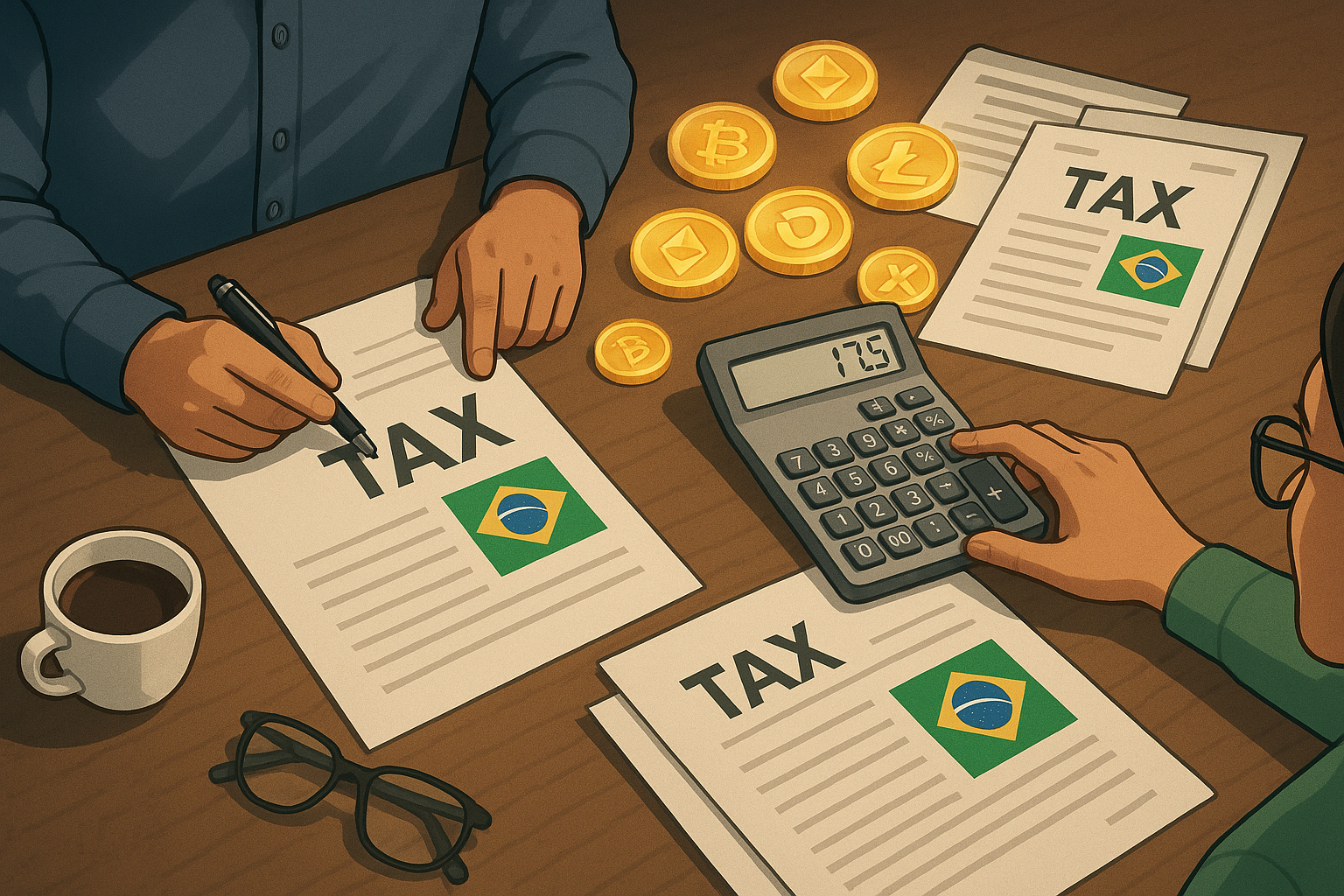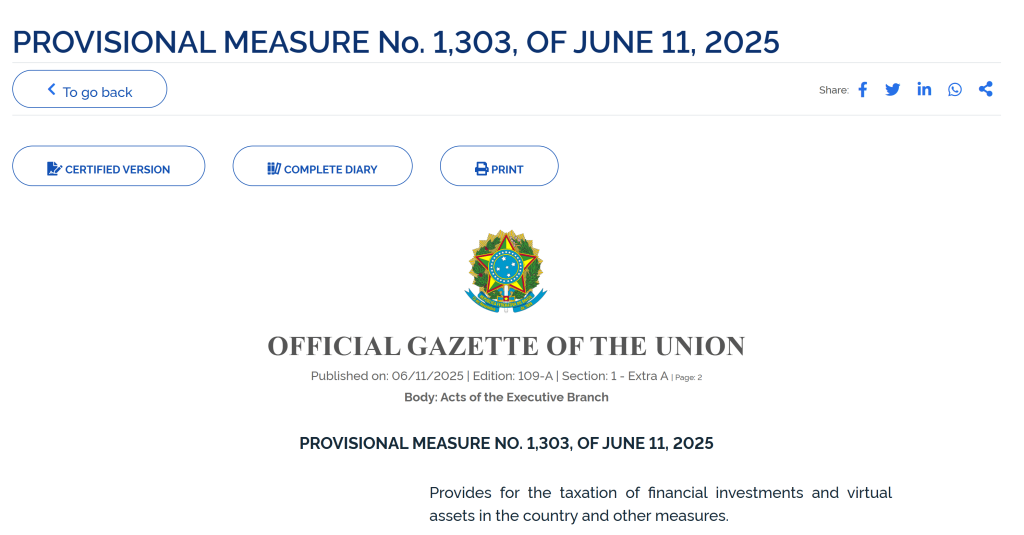
Brazil Ends Crypto Tax Exemption, Sets 17.5% Flat Rate
Brazil Imposes 17.5% Flat Tax on All Crypto Gains
Brazil has scrapped its crypto tax exemption for small investors. Now, all digital asset gains are taxed at a flat 17.5%. This change came under Provisional Measure 1303. It’s part of a larger effort to boost revenue through financial market taxation.
Until now, residents who sold less than 35,000 reals ($6,300) in crypto per month paid no income tax. Gains beyond that were taxed progressively—ranging from 15% up to 22.5% for large trades.
Starting June 12, the new rules apply a flat rate to all crypto profits. That means small investors will pay more. However, high-volume traders may benefit. Those who previously paid up to 22.5% on gains will now pay just 17.5%.
Self-Custody and Offshore Holdings Included
The tax reform also widens the scope. Assets held in self-custody wallets and on foreign exchanges are now taxed.
Tax will be calculated quarterly. Investors can deduct losses from the past five quarters. But beginning in 2026, this window will be shorter.
The changes affect more than just crypto. Fixed-income products like LCAs, LCIs, CRIs, and CRAs now face a 5% tax on profits. Taxes on betting revenue have also increased—from 12% to 18%.
These changes follow public backlash to a proposed IOF tax hike. That plan was later dropped due to strong opposition.

Crypto Salary Proposal Under Review
In March, lawmakers introduced a bill to allow partial salary payments in Bitcoin. Under the proposal, crypto wages can’t exceed 50% of an employee’s salary.
Foreign workers and freelancers could receive full crypto payments. But this must follow Central Bank guidelines. Also, exchange rates used for payment must come from approved financial institutions.
If passed, the law would make Brazil one of the few countries to allow wages in digital assets.


